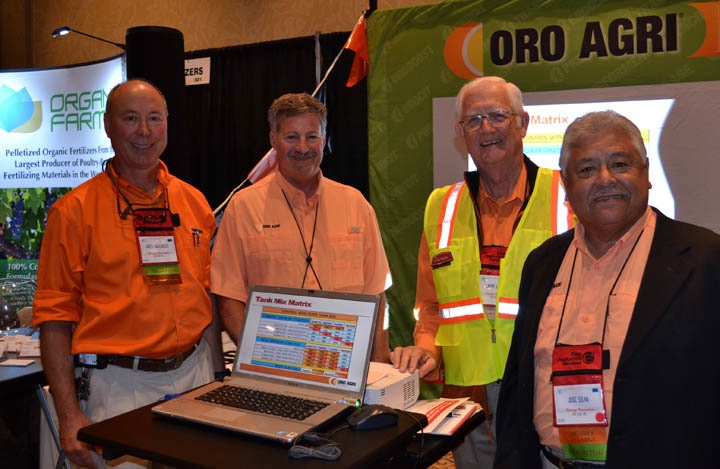November 21, 2012

A California producer must comply with no fewer than 70 individual laws and regulations before he can apply a pesticide. That is not likely to change, according to Barry Bedwell.
There may be regulation rollbacks and some regulations may be combined. However, it will forever remain a fact of life that the men and women who farm in what arguably is one of the most productive agricultural regions in the world will long remain the most regulated in the nation, if not the world.
Bedwell, president of the California Grape and Tree Fruit League, told the 1,300 people at the California Association of Pest Control Advisers annual conference that as onerous as that may be, it is a compelling fact to be communicated to the American consumer.
Bedwell heads a 300-member voluntary organization that represents 85 percent of the $2 billion California grape and fruit industry from the Coachella Valley to Lake County.
He encouraged CAPCA members to talk to consumers about the regulatory oversight and the rules for protecting human health that are behind those 70 regulations to assure them their food supply is safe and healthy.
After all, it is consumers, not the farmers or the pest control advisers, who will make the decision about what farmers can apply to protect crops, Bedwell says.
Consumers are being bombarded with extremist anti-pesticide messages in an era when residues can be measured in parts per trillion. “People really do not understand those numbers,” he said. Consumers are led to believe detection equals risk and are wanting zero residues, an impossible bar to reach with the finite detection techniques now being used.
Combine those fears with the fervor of the anti-pesticide/anti-corporate extremists, and that only heightens the challenge faced by agriculture.
Perception about pesticides has become reality, he says. In facing the challenging of informing the public about the safest food supply in the world, Bedwell emphasized that agriculture must understand the concerns mothers have for their children’s safety and “never take it lightly,” he says.
“It is our job to communicate” the regulatory process now in place and instill in people confidence that the fruits and vegetables produced in California are safe.
For those who say the long term impact of pesticides is unknown, Bedwell responds by reminding people that not only does California have the most thorough food safety regulatory process in the nation, it has been in place for years.
Farmers need not whitewash the fact pesticides are toxic and are used to protect food and fiber from pests and diseases.
“Play the political game the right way. Play by the rules. It’s all about sustainability in California agriculture, one of the greatest places to grow food in the world,” Bedwell says.
Make the message positive, he adds.
Forget the extremists
Forget the extremists on either side of the pesticide use issue. They will not be convinced otherwise, Bedwell says. The message of food safety must go to the middle, those who are reasonable and willing to listen.
Bedwell is a board member of the Alliance for Food and Fiber, which he says is “setting the record straight” about safe fruit and vegetable consumption to the reasonable.
The alliance faces off with the Environmental Working Group and its infamous Dirty Dozen of fruits and vegetables EWG claims are tainted with pesticides
EWG and those of a similar ilk are “scaring people away from eating healthy fruits and vegetables.”
“I get very angry about these single dimensional viewpoints that do not recognize consequences” of steering people away from healthy food.
Bedwell’s anger no doubt boiled over in the wake of the recent announcement from Stanford University that there is no nutritional difference between organically grown and conventional fruits and vegetables.
“Bottom line” from the study was “it doesn’t matter” where fruits and vegetables come from — conventional agriculture or organic — “eat fruits and vegetables because they are healthy for you.”
However, extremists immediately responded to the study by claiming that large corporations had bought out the prestigious university and that coventionally grown fruits and vegetables were grown with pesticides and organics are not.
“Organic does not mean no pesticides,” Bedwell said, adding organic food is not more sustainable than conventionally grown food.
Bedwell believes that this extremist view is detrimental to the nation’s health because not eating healthy fruits and vegetables increases the chances of cancer.
He believes EWG “should be held accountable” for their scaremongering that is endangering the health of a nation.
It is a daunting task to change the perception of the public, but it is a challenge that must be met or the U.S. food supply will be outsourced from offshore, where regulatory food safety oversight is often lax, Bedwell says. This would also threaten the nation’s security by relying on other nations for food.
About the Author(s)
You May Also Like






